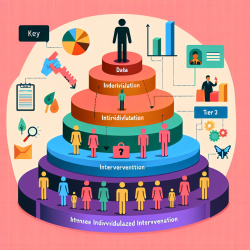Understanding Eco-Anxiety in Children
As climate change becomes an increasingly pressing issue, its psychological impacts are becoming more apparent, especially among children. The term "eco-anxiety" refers to the chronic fear of environmental doom, a condition that is now being recognized as a significant mental health concern among youth. This blog explores the findings from a recent scoping review titled Eco-anxiety in children: A scoping review of the mental health impacts of the awareness of climate change, which highlights the emotional and psychological responses of children to climate change.
Key Findings from the Research
The scoping review analyzed 18 articles to understand how children experience eco-anxiety. The findings indicate that children are not only aware of climate change but are also experiencing significant emotional responses such as fear, anger, sadness, and hopelessness. Notably, worry and hope were the two most reported emotions, suggesting a complex emotional landscape where children are both concerned about and hopeful for the future.
Interestingly, the review also found that girls are more likely to experience both worry and hope regarding climate change, highlighting a gender difference in emotional responses. This aligns with existing research indicating that girls generally have higher emotional awareness, which may explain their heightened response to climate change.
Implications for Practitioners
For practitioners working with children, understanding eco-anxiety is crucial for providing effective support. The review suggests several strategies that can be implemented:
- Encourage Open Discussions: Create safe spaces where children can express their emotions about climate change without fear of judgment.
- Promote Hope and Agency: Encourage children to engage in environmental actions, which can foster a sense of agency and hope.
- Integrate Climate Education: Incorporate age-appropriate climate education into school curriculums to help children understand the issue and develop coping strategies.
Future Research Directions
The review identifies several gaps in the current literature, emphasizing the need for further research. Future studies should aim to develop child-specific measures of eco-anxiety and explore the long-term impacts of climate change awareness on children's mental health. Additionally, research should focus on developing interventions that can help children build resilience and adapt to the emotional challenges posed by climate change.
To read the original research paper, please follow this link: Eco-anxiety in children: A scoping review of the mental health impacts of the awareness of climate change.










